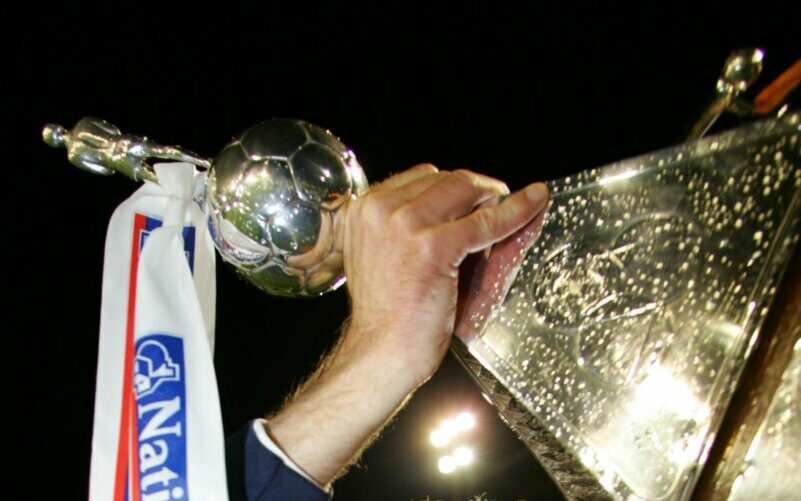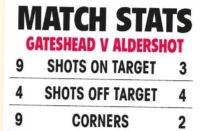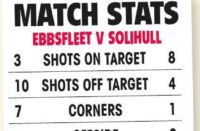Paul Fairclough celebrates winning the Conference with Barnet
By Chris Dunlavy
Only one Paul Fairclough? Not according to Giuliano Grazioli, who spent five years working under one of Non-League‘s most esteemed characters.
“I signed for Stevenage in 1998 and was there for six months,” says the 45-year-old. “The Paul I met then was a good manager. Calm, meticulous. Unbelievable attention to detail.
“But the Paul who joined Barnet in 2004 was exceptional. He’d gone away, studied, travelled the globe watching coaching sessions. He’d become tight with Arsene Wenger.
“Back in those days, Non-League was very old school. Run round the pitch, do a stretch in each corner. Five-mile runs in pre-season. With Paul, it was all football-specific.
“We’d warm up before games, and you could see the opposition watching us, going ‘What the hell are they doing?’ We’d be doing stretches they’d never seen, legs here, there and everywhere. Three or four months later, they were all doing it.
“Then there was the sports science, the nutrition, the possession football. He was miles ahead of his time. Absolutely miles.”
Max Porter, who played under Fairclough for both Barnet and the England C team, nods at this description.
“I’ve heard people talk about there being two versions of Paul before, and I actually think it sums him up perfectly,” says the former Newport and Wimbledon midfielder.
“He was a teacher by trade and his whole ethos was about learning and changing. He had a growth mindset, and continually wanted to challenge ideas and evolve. He wanted to win, of course. But, really, he wanted to improve – himself and his players.”
Fairclough, an amateur player for Liverpool reserves during the era of Bill Shankly, was the architect of Stevenage Borough’s meteoric rise to the Conference during the nineties, and Barnet’s ascent to the Football League in 2005.
For the last 17 years, he has also acted as guardian and leader of England C, showcasing the talents of countless EFL stars-in-the-making.
In every role, he has chosen reflection over reaction, insight over ire. To Fairclough, measured, thoughtful, and quietly intense, football is not a game of blood and thunder. It is a science, and every player a project.
“I spent three years with Paul and never once saw him get angry,” said Barry Hayles, who was converted from a left-back to a striker by Fairclough at Stevenage and subsequently played for Fulham in the Premier League.
“He didn’t need to. He understood people. He knew how to motivate them and get his point across without any drama.”
Porter describes finding Fairclough “completely different” to any manager he’d encountered, a sentiment echoed by Grazioli.
“I was used to people like Barry Fry and Martin Allen,” laughs the striker, who scored 29 times in Barnet’s promotion campaign. “Good managers, but a world away from Paul.
“We could get beat 4-0 and most managers would come in, hammer you, then haul everybody in for training the next day. Paul would say ‘You know what guys, that last 20 minutes – if you start the next game like that, we’ll do great’. He could turn anything into a positive.”
Porter adds: “With some managers it’s ‘Why didn’t you do this? Why didn’t you pick that player up?’ Paul’s wording was always ‘What can we do differently?’ What can we add?’
“There was no blame, and he didn’t instruct. He gave you ownership. It was ‘Right, this is how the opponent plays – what do you think we should do?’”
As Hayles notes, Fairclough’s approach was informed by a deep understanding – and deft use – of psychology.
“I remember when I joined Barnet from Bishop’s Stortford in 2007,” says Porter. “Paul’s questions were all about my hopes and fears, my ambitions. He wanted to know me as a person. For me, it was an immediate buy-in.”
On England C duty, players are encouraged to stand up in front of the squad and voice their greatest fears. It was a tactic first deployed to great effect before Stevenage snatched a famous draw with Alan Shearer’s Newcastle in an FA Cup third round match in 1998.
“Everybody just opened up,” recalls Grazioli. “Playing in front of the Sky cameras for the first time. Being embarrassed. Losing 10-0 and all your family seeing you get ridiculed.
“Paul went through those worries one by one, alleviating all that fear. One of the big ones was fitness, so he brought a three-week programme to build stamina and endurance.
“By the day of the game, we weren’t worried about anything. We went a goal down after 40 seconds and we ended up getting a replay.”
At Barnet, Fairclough was utilising professional psychologists a decade before many Premier League teams.
He never did get approached by EFL clubs, a fact that rankled for many years. Yet his modern methods and holistic approach proved perfect for England C.
“The way Paul works is quite intense at club level,” explains Porter. “The analysis and the constant challenges. But it was perfect for international football. I was always amazed at how quickly he got us to gel – as a team and as a group of people.”
More than 200 players have graduated from the C’s to the EFL, and they aren’t the only ones grateful to Fairclough.
“I just wish I’d met Paul 15 years earlier because those years at Barnet were the best I’ve ever felt as a player – physically and mentally,” says Grazioli.
Porter, now 32 and a full-time youth coach at Arsenal, goes even further. “As a little boy, everybody wants to play for their country and turn pro,” he says. “Paul gave me that chance. I can’t thank him enough.”

























